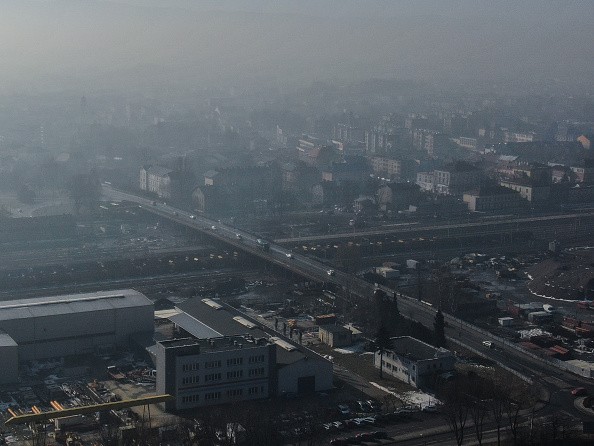According to new findings, even short-term increases in airborne particles can affect brain health in older men.

Even as peak levels of polluted air remained below protective limits set by the World Health Organization and national authorities, scientists discovered that the men's cognitive capacity deteriorated following increases in air quality during the month before tests.
The results add to an increasing body of evidence that fine particulate matter in the air, mostly from automobiles and manufacturing, is toxic not only to the heart and lungs but also to the brain's fragile neural tissues.
Affecting Cognitive Scores

Multiple cognitive test scores from nearly 1,000 men living in the Greater Boston area were collected and compared to local amounts of PM2.5s - airborne particles smaller than 2.5 micrometers wide - by researchers in the United States and China. The men in the survey were all white and averaged 69 years old.
The researchers explain how higher PM2.5 levels up to four weeks before tests were related to weaker cognitive output on tasks ranging from word memory to number recall and verbal fluency in a paper published in Nature Aging. Even when PM2.5 concentrations remained below 10 micrograms per cubic meter, the WHO guideline limit that is regularly broken in London and many other cities, the impact was visible.
Related Article : Man Saved From Deportation Over Reason of Air Pollution
Levels of Severity
Surprisingly, the research discovered signs that men who took aspirin or other non-steroidal anti-inflammatory drugs (NSAIDs) were less impacted by short-term increases in air emissions. "Our findings suggest that short-term exposure to air pollution is linked to short-term changes in cognitive function and that NSAIDs can alter this relationship," the authors write. According to one theory, painkillers like these can benefit by reducing inflammation caused by fine particles entering the brain.

While the WHO recommends that PM2.5 amounts not reach 10 micrograms per cubic meter annually, the UK has set a higher limit of 25 micrograms per cubic meter. PM2.5 values of less than 35 micrograms per cubic meter are considered "normal" by the government's air quality index.
Last month, Philip Barlow, the coroner for inner south London who found that air quality was a factor in Ella Kissi-death, Debrah's said the UK needed to introduce lower legally binding thresholds for particulate air pollution.
Air Pollution on General Wellbeing

The effects of polluted air on respiratory and cardiovascular wellbeing are well documented, and evidence of brain injury is growing. The air exposure has been attributed to decreased intelligence and dementia in studies. Prof Jamie Pearce of Edinburgh University led a study in February that showed that childhood exposure to air pollution was related to poorer thinking skills later in life.
Dr. Joanne Ryan, head of biological neuropsychiatry and dementia studies at Monash University in Melbourne, who was not interested in the new study, said, "The results further emphasize the effect of air quality on human health." "The significance of this research is that the results support a possible causal correlation between air pollution and brain activity, implying that it is not only very high levels of prolonged exposure that are worrying. The study discovered that even low levels of air emissions may have a detrimental effect on cognitive performance over brief periods of time."
For more Environmental News, Don't Forget to Follow Nature World News!
© 2026 NatureWorldNews.com All rights reserved. Do not reproduce without permission.





